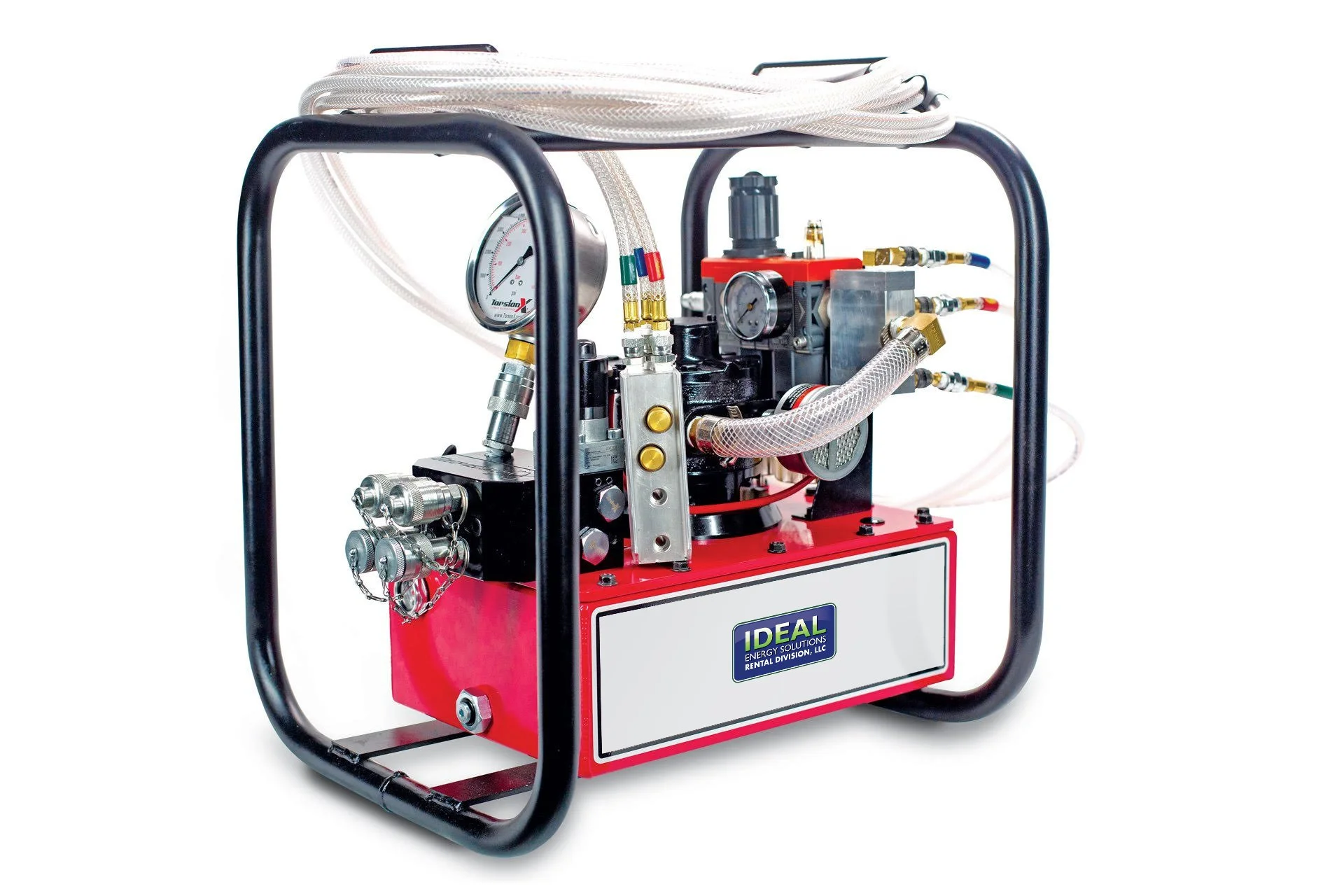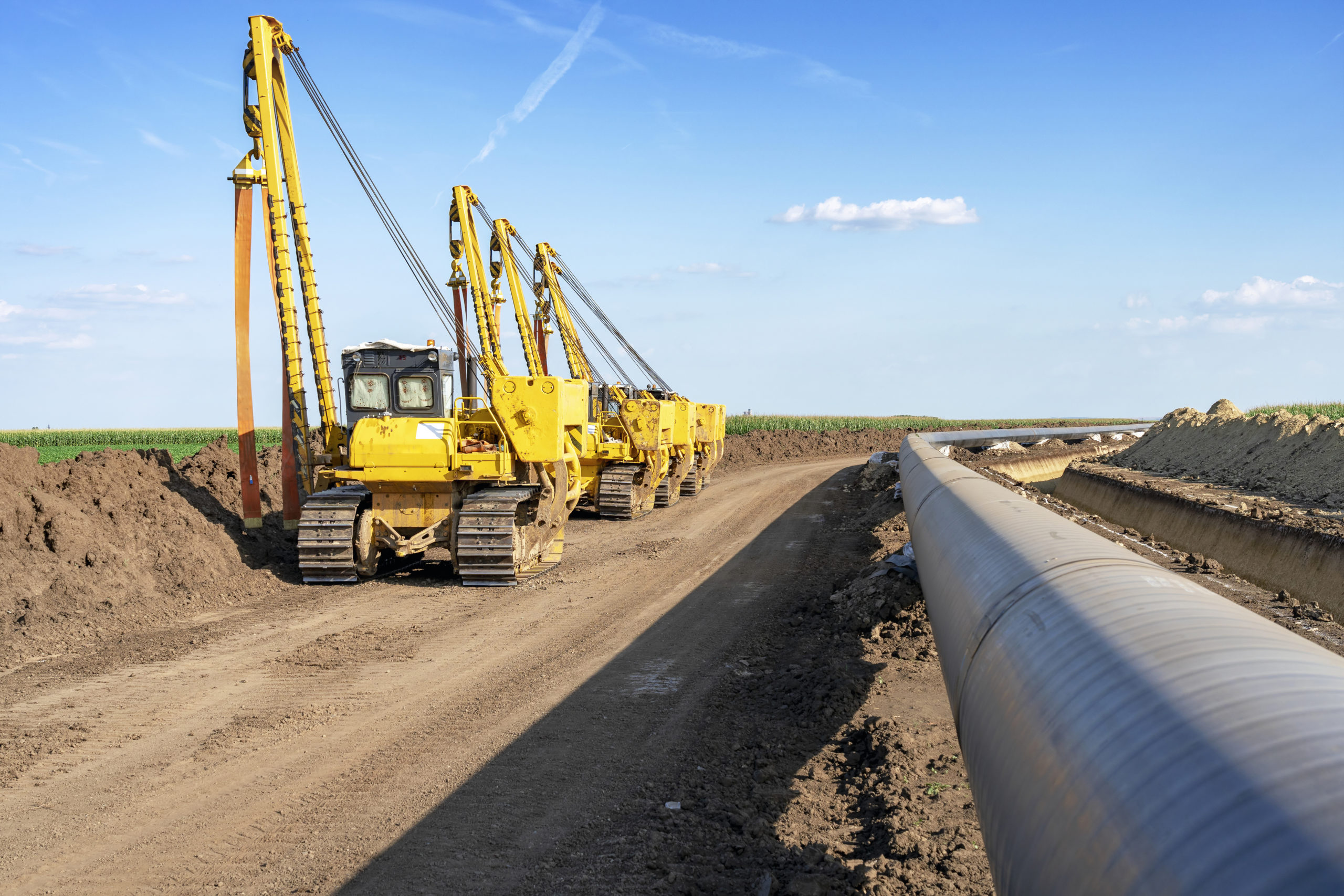A comprehensive overview to Superior Oilfield Rentals Texas and what it offers
A Comprehensive Guide to the Various Sorts Of Oil Field Equipment and Pipeline Equipment Available
The oil and gas industry counts heavily on specific equipment for efficient removal and transport. Different sorts of equipment, from drilling rigs to storage containers, play crucial functions in this complex process. Each item of devices offers unique features that contribute to general functional success. Comprehending these parts is essential for any person entailed in the industry. As the sector develops, so too do the modern technologies that sustain it. What advancements are on the horizon?

Drilling Rigs: The Foundation of Oil Expedition
Drilling rigs serve as the important equipment in the domain of oil expedition, allowing companies to accessibility hydrocarbon gets buried deep below the Earth's surface. These rigs come in numerous types, including land rigs, offshore rigs, and mobile systems, each developed to run in details atmospheres. Equipped with innovative modern technology, drilling rigs can penetrate geological formations with accuracy, making certain effective resource extraction. The architectural honesty and operational capacities of these rigs are vital, as they must endure severe conditions and substantial pressures. Furthermore, the option of a boring rig impacts the overall task cost and timeline, making it a crucial consideration for oil companies looking for to optimize their exploration efforts and take full advantage of efficiency in their procedures.
Pumps: Vital for Liquid Activity
In the oil extraction process, the function of pumps is significant, facilitating the activity of fluids throughout various phases of production. Pumps are vital for delivering unrefined oil, water, and various other fluids from below ground storage tanks to the surface area and after that via pipes to refineries. They come in numerous types, including centrifugal, positive displacement, and submersible pumps, each offering details objectives based on the fluid attributes and operational demands. Centrifugal pumps are typically made use of for their efficiency in high-flow applications, while favorable displacement pumps master taking care of viscous liquids. The choice of pump influences total efficiency, operational safety, and upkeep costs. Proper selection and maintenance of pumps are important for enhancing manufacturing and decreasing downtime in oil field procedures.
Shutoffs: Controlling Flow and Pressure

Shutoffs play an essential role in handling the flow and stress of fluids within oil areas and pipes. Numerous kinds of shutoffs serve distinct applications, each made to fulfill specific features essential for reliable procedure - Superior Oilfield Rentals Texas. Comprehending the qualities and uses of these shutoffs is essential for maximizing system efficiency and safety and security
Types of Valves
Necessary parts in oil area operations, valves play a crucial role in regulating the circulation and pressure of liquids within pipes and devices. Different kinds of shutoffs are used to fulfill the varied requirements of oil and gas production. Common types include entrance shutoffs, which provide a straight-line flow and minimal stress decline; globe shutoffs, recognized for their strangling capabilities; and sphere valves, identified for their fast on/off control. In addition, check valves avoid backflow, while butterfly valves provide a lightweight remedy for managing circulation. Each valve type is developed with certain materials and arrangements to stand up to the rough problems often located in oil fields, ensuring integrity and effectiveness in procedures. Recognizing these types is crucial for effective system management.
Valve Applications and Functions
While numerous sorts of valves offer distinctive purposes, their primary applications revolve around managing circulation and stress within oil and gas systems. Valves such as gateway, globe, and sphere valves manage fluid movement, guaranteeing peak performance and security. Gate shutoffs are typically utilized for on/off control, providing very little flow resistance. World valves, on the various other hand, deal accurate flow guideline, making them appropriate for strangling applications. Sphere shutoffs are favored for their fast procedure and limited securing abilities. In addition, pressure safety valve are crucial for avoiding system overpressure, safeguarding tools stability. On the whole, the ideal selection and application of shutoffs enhance functional efficiency, making sure the dependable transportation of oil and gas with pipes and processing facilities.
Compressors: Enhancing Gas Transport
Compressors play a critical function in the efficient transportation of gas, making certain that it moves smoothly through pipes over cross countries. These tools raise the stress of gas, allowing it to conquer friction and altitude changes within the pipeline system. Furthermore, compressors assist in the harmonizing of supply and demand, fitting fluctuations in intake and production rates. Various kinds of compressors are utilized in the sector, consisting of centrifugal, reciprocating, and rotary screw compressors, each offering distinct benefits based on the functional requirements. Regular maintenance of these compressors is vital to make the most of efficiency and reduce downtime, eventually adding to a reliable gas transportation network. Their vital function emphasizes the importance of compressors in the total oil and gas facilities.
Storage Tanks: Safe and Effective Fluid Administration
Reliable transportation of gas relies on different support group, among which is the correct monitoring of tank. These containers play a vital role in securely consisting of liquids, guaranteeing that operational effectiveness is preserved while lessening environmental dangers. Constructed from durable products, they more info are created to withstand high pressures and harsh aspects. Effectively sized and tactically situated, storage space tanks assist in the smooth flow of gas and various other liquids, avoiding traffic jams in supply chains. Normal upkeep and surveillance are essential to spot leakages or architectural concerns, promoting security and compliance with regulatory standards. Inevitably, the reliable management of storage space tanks is vital for the overall honesty and dependability of the oil and gas sector's liquid handling systems.
Pipeline Systems: Infrastructure for Transportation
Pipeline systems serve as the foundation of the oil and gas market, helping with the efficient transport of hydrocarbons over huge distances. These systems contain various elements, including pipelines, valves, pumps, and compressors, all thoroughly developed to guarantee smooth circulation. The materials made use of in pipeline construction, typically steel or high-density polyethylene, are chosen for toughness and resistance to corrosion. Pipeline networks can cover throughout land and water, connecting manufacturing sites to refineries and distribution. In addition, advanced modern technology enables real-time tracking of circulation rates and stress levels, enhancing functional efficiency. The tactical positioning of these pipelines lessens environmental impact while making the most of source accessibility, thereby playing an important role in conference power demands worldwide.
Security Equipment: Making Certain Worker and Environmental Management
The procedure of pipeline systems, while essential for power transport, likewise provides significant safety and security obstacles for employees and the atmosphere. Safety tools plays a substantial function in reducing these risks. Individual protective equipment (PPE) such as headgears, gloves, and non-slip footwear safeguards employees from physical dangers. Additionally, gas detection systems keep track of for leakages, making sure that damaging substances do not present a danger to personnel or the bordering community. Emergency closure systems are critical for promptly stopping operations throughout a dilemma, protecting against prospective disasters. Spill control materials, consisting of absorbents and obstacles, are fundamental for lessening environmental influence. Overall, purchasing comprehensive safety tools is crucial for keeping operational honesty and protecting both employees and the atmosphere in the oil and gas industry.

Frequently Asked Questions
How Do I Choose the Right Oil Field Equipment for My Project?
Choosing the appropriate oil area tools includes assessing project specifications, spending plan restraints, and functional needs. Consider aspects such as tools dependability, compatibility with existing systems, and the vendor's online reputation to guarantee peak performance and safety and security.
What Are the Upkeep Requirements for Oil Field Equipment?
Upkeep demands for oil field devices consist of routine inspections, lubrication, and prompt repair work. Operators ought to likewise abide by manufacturer guidelines, screen efficiency metrics, and guarantee compliance with security guidelines to enhance longevity and performance.

Just How Can I Make Certain Conformity With Environmental Laws?
To assure conformity with ecological regulations, companies should carry out routine audits, execute finest methods, purchase training, preserve appropriate paperwork, and remain updated on regulations (Superior Oilfield Rentals oilfield). Cooperation with ecological firms can additionally improve adherence to policies
What Is the Ordinary Life Expectancy of Pipeline Equipment?
The ordinary life-span of pipeline equipment normally varies from 20 to 50 years, depending upon variables such as worldly quality, environmental problems, and maintenance techniques. Normal examinations can considerably influence long life and functional effectiveness.
Exactly how Do I Securely Carry Oil Field Equipment to Remote Locations?
Transporting oil area devices to remote locations calls for cautious preparation, consisting of route analysis, protecting permits, making use of suitable vehicles, and making certain security protocols are adhered to. Appropriate training and interaction among crews are important for successful transportation.